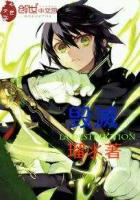Sitting at his Bonn desk with an early-morning cup of coffee, Rainer learned of Cardinal de Bricassart's death from his newspaper. The political storm of the past few weeks was diminishing at last, so he had settled to enjoy his reading with the prospect of soon seeing Justine to color his mood, and unperturbed by her recent silence. That he deemed typical; she was far from ready yet to admit the extent of her commitment to him. But the news of the Cardinal's death drove all thought of Justine away. Ten minutes later he was behind the wheel of a Mercedes 280 SL, heading for the autobahn. The poor old man Vittorio would be so alone, and his burden was heavy at the best of times. Quicker to drive; by the time he fiddled around waiting for a flight, got to and from airports, he could be at the Vatican. And it was something positive to do, something he could control himself, always an important consideration to a man like him. From Cardinal Vittorio he learned the whole story, too shocked at first to wonder why Justine hadn't thought to contact him. "He came to me and asked me, did I know Dane was his son?" the gentle voice said, while the gentle hands smoothed the blue-grey back of Natasha.
"And you said?"
"I said I had guessed. I could not tell him more. But oh, his face! His face! I wept."
"It killed him, of course. The last time I saw him I thought he wasn't well, but he laughed at my suggestion that he see a doctor."
"It is as God wills. I think Ralph de Bricassart was one of the most tormented men I have ever known. In death he will find the peace he could not find here in this life."
"The boy, Vittorio! A tragedy."
"Do you think so? I like rather to think of it as beautiful. I cannot believe Dane found death anything but welcome, and it is not surprising that Our Dear Lord could not wait a moment longer to gather Dane unto Himself. I mourn, yes, not for the boy. For his mother, who must suffer so much! And for his sister, his uncles, his grandmother. No, I do not mourn for him. Father O'neill lived in almost total purity of mind and spirit. What could death be for him but the entrance into everlasting life? For the rest of us, the passage is not so easy."
From his hotel Rainer dispatched a cable to London which he couldn't allow to convey his anger, hurt or disappointment. It merely said: MUST RETURN BONN BUT WILL BE IN LONDON WEEKEND STOP WHY DIDN'T YOU TELL ME QUERY ALL MY LOVE RAIN On his desk in the office at Bonn were an express delivery letter from Justine, and a registered packet which his secretary informed him had come from Cardinal de Bricassart's lawyers in Rome. He opened this first, to learn that under the terms of Ralph de Bricassart's will he was to add another company to his already formidable list of directorships. Michar Limited. And Drogheda. Exasperated yet curiously touched, he understood that this was the Cardinal's way of telling him that in the final weighing he had not been found wanting, that the prayers during the waryears had borne fruit. Into Rainer's hands he had delivered the future welfare of Meggie O'neill and her people. Or so Rainer interpreted it, for the wording of the Cardinal's will was quite impersonal. It could not dare be otherwise. He threw the packet into the basket for general nonsecret correspondence, immediate reply, and opened the letter from Justine. It began badly, without any kind of salutation.
Thank you for the cable. You've no idea how glad I am that we haven't been in touch these last couple of weeks, because I would have hated to have you around. At the time all I could think when I thought of you was, thank God you didn't know. You may find this hard to understand, but I don't want you anywhere near me. There is nothing pretty about grief, Rain, nor any way your witnessing mine could alleviate it. Indeed, you might say this has proved to me how little I love you. If I did truly love you I'd turn to you instinctively, wouldn't I? But I find myself turning away. Therefore I would much rather that we call it quits for good and all, Rain. I have nothing to give you, and I want nothing from you. This has taught me how much people mean if they're around for twenty-six years. I couldn't bear ever to go through this again, and you said it yourself, remember? Marriage or nothing. Well, I elect nothing.
My mother tells me the old Cardinal died a few hours after I left Drogheda. Funny. Mum was quite cut up about his dying. Not that she said anything, but I know her. Beats me why she and Dane and you liked him so much. I never could, I thought he was too smarmy for words. An opinion I'm not prepared to change just because he's dead.
And that's it. All there is. I do mean what I say, Rain. Nothing is what I elect to have from you. Look after yourself.
She had signed it with the usual bold, black "Justine," and it was written with the new felt-tipped pen she had hailed so gleefully when he gave it to her, as an instrument thick and dark and positive enough to satisfy her. He didn't fold the note and put it in his wallet, or burn it; he did what he did with all mail not requiring an answer-ran it through the electric shredder fixed to his wastebasket the minute he had finished reading it. Thinking to himself that Dane's death had effectively put an end to Justine's emotional awakening, and bitterly unhappy. It wasn't fair. He had waited so long.
At the weekend he flew to London anyway but not to see her, though he did see her. On the stage, as the Moor's beloved wife, Desdemona. Formidable. There was nothing he could do for her the stage couldn't, not for a while. That's my good girl! Pour it all out on the stage.















